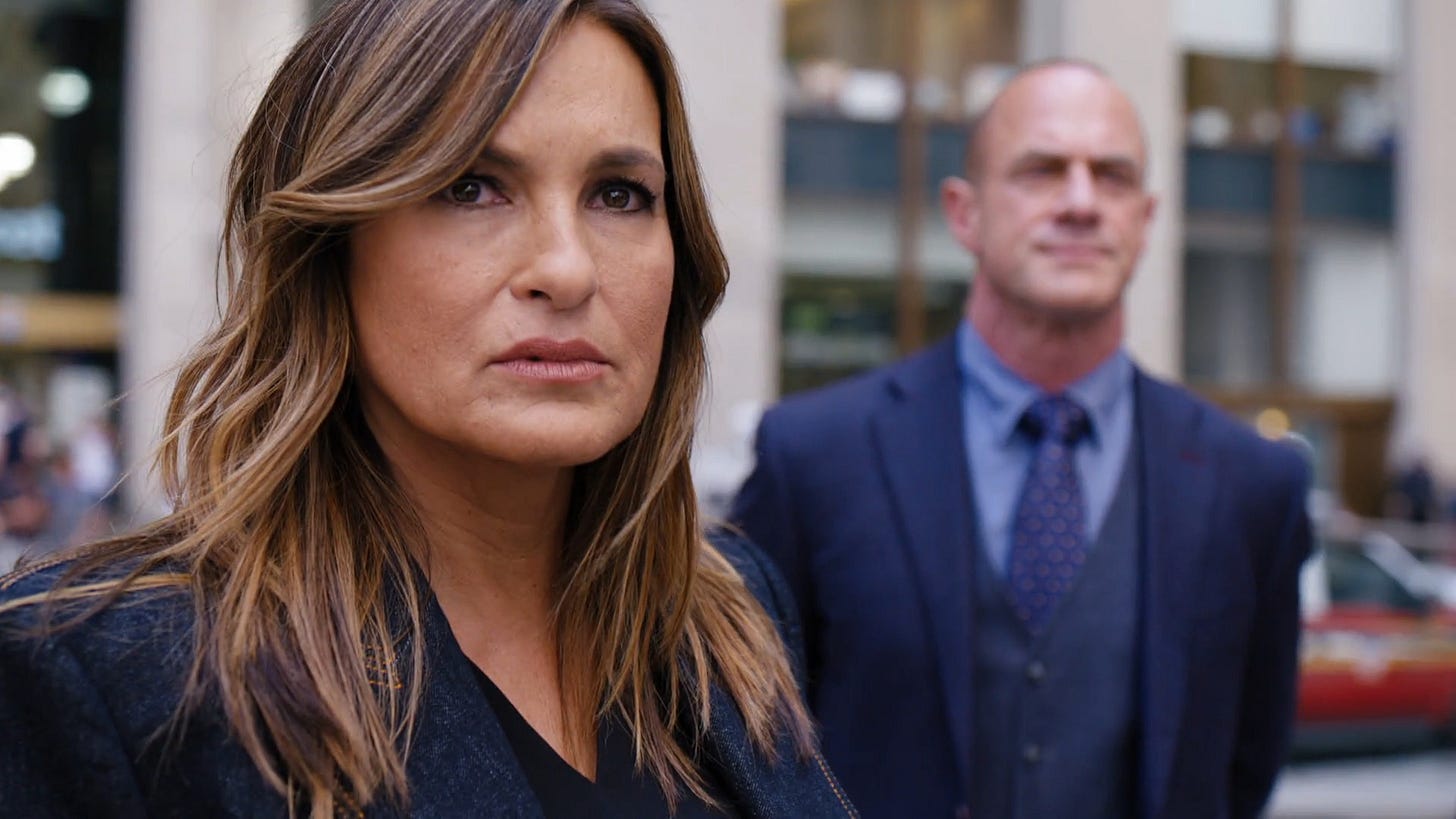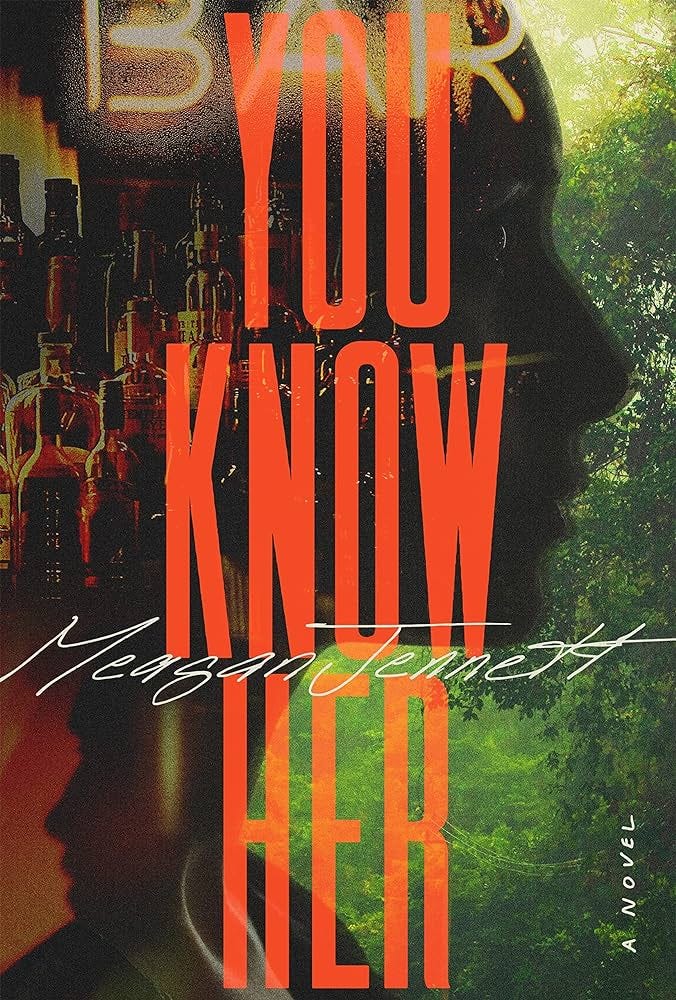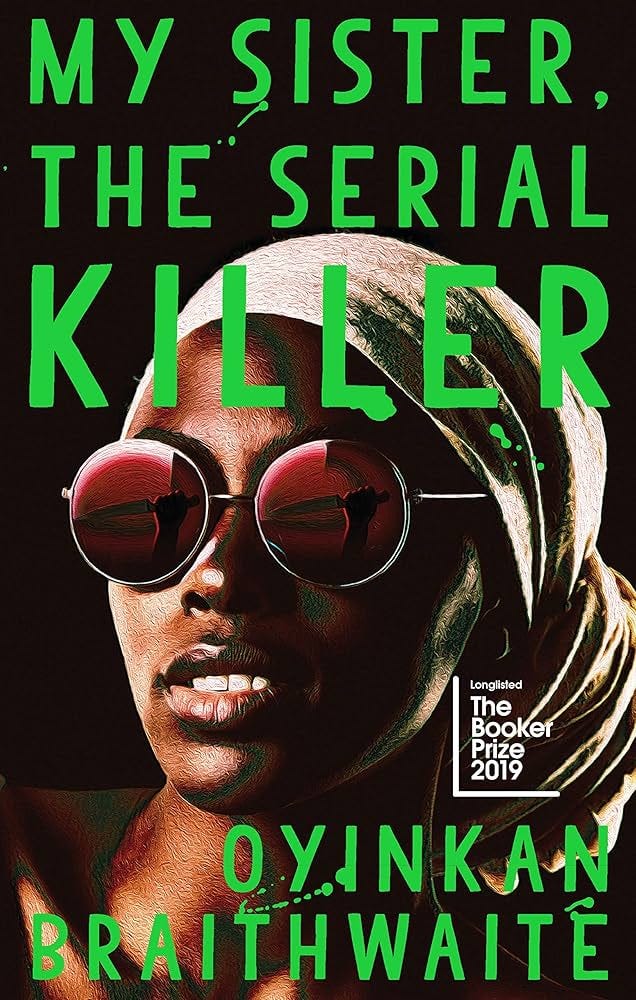In my late teens and early twenties, I watched a lot of TV. Buffy and Battlestar Galactica, sure, but mostly crime shows, cops shows, procedurals: Bones, Monk, Law & Order SVU, Criminal Minds, Crossing Jordan, NCIS, Psych, Lie To Me, Castle.1 They offer a reliably satisfying narrative arc you can rest against: Yes, by the end of these 40 minutes, the familiar detectives will find the culprit and deliver answers, leaving us with the sense that the world is right again.
But most procedural shows begin to spiral into more and more convoluted plots as the seasons march on. The murderer threatens the detectives and their families; the crimes themselves defy logic and possibility; the killers' psychology twists and twists again. The show cannot look away from the criminal, the crime, the violence. Oh! Look at the many fucked up ways this man has found to cause another person pain! But it ends there. They amplify violence without saying anything about it.

What I loved was the cleverness of the detectives, not the romanticized cleverness of the criminal. I am not interested in luxuriating in acts of violence, especially against women (and it is so often women).
Perhaps the opposite of shows like Criminal Minds is the cozy mystery genre, where the dead bodies are barely even present and we can be sure our protagonists will make it to the end? Stories that largely erase the human impact of murder? No, cozies (like procedurals) have nothing to say about violence.
The more I think about it, the more I think the real opposites of Criminal Minds are stories that work to say something about violence, not just to shudder at it.
So here are three things with something to say about murder (and gender and violence):
DEADLOCH by Kate McCartney & Kate McLennan (Amazon Prime)
“Serial killers love routine.”
“Like babies.”
Small town Tasmania, rife with tension between the townies and the recently descended hordes of lesbians, who’ve brought nose-to-tail dining and performance art to sleepy Deadloch.
And then men start turning up dead, and tightly-wound local cop Dulcie must work together with the wildly chaotic detective who’s been sent in to help solve the cases, despite the interference of Dulcie’s “emotional truffle pig” of a wife, the mayor whose anxious IBS has “shredded” her colon, and the paternalistic police commissioner.
This show was a treat. The dialogue is sharp (and cunt-studded), everyone gets what they deserve, and alongside the humor, it’s also very much about gendered violence, without once needing to show us a dead woman.2
And you, here in my heart, in my tale with me, don’t look away. How many times have you watched women scream? For fun, for ghost stories, podcasts, pornography, prime-time HBO? You gobble our pain down like candy, always hungry for the next handful, the next story, the more salacious the better. Well, now it was his turn.
Don’t you dare look away.
This is not a funny book. It’s a disturbing, dense, southern gothic story about a bartender, Sophie, who kills a male regular on New Year’s Eve (after he steals a glass of wine), and the new-in-town cop (Nora, the only woman on the local force) who befriends her, even as Nora works to track down who is killing (and mutilating) the men in town.
It’s creepy and fast-paced and I left it feeling deeply unsettled. Jennett takes ideas about who is and isn’t perceived as a threat and twists them uncomfortably, muddles them into a cloying southern setting, and serves them up with a dash of bitterness.3
MY SISTER, THE SERIAL KILLER by Oyinkan Braithwaite
It takes a whole lot longer to dispose of a body than to dispose of a soul, especially if you don’t want to leave any evidence of foul play.
Korede is a nurse; she knows how to clean up blood and she isn’t squeamish, which is a good thing, because her beloved sister Ayoola keeps killing boyfriends “in self defense.” And Ayoola has her eye on a doctor at the hospital where Korede works — a doctor that Korede just happens to be in love with.
This is a sharp, spare (& somewhat cynical) book about the legacy of violence, about family bonds (and blindness), about gender and power and what it means to let ourselves be known. I really appreciated Braithwaite’s light touch — she tells the story with the eye of a poet, giving us pearl after pearl of imagery and insight without ever letting the story slow or stagnate.
Plus one: JANE: A MURDER by Maggie Nelson - a true crime memoir about the murder of Nelson’s aunt and the lasting impact on her family, told in poems and excerpts from Jane’s diaries and Nelson’s signature blending of pathos and analysis
Do you have any recommendations for books with something to say about violence? Or non-murder mysteries?
With love & complicated feelings about the consumption of violence as entertainment,
Portia
It’s not new, our obsession with crime. And much has been written (and said) about our cultural obsession with violent death.
Big thanks to Lindsay for the recommendation!
Too much? Sorry, I can’t help the puns!






